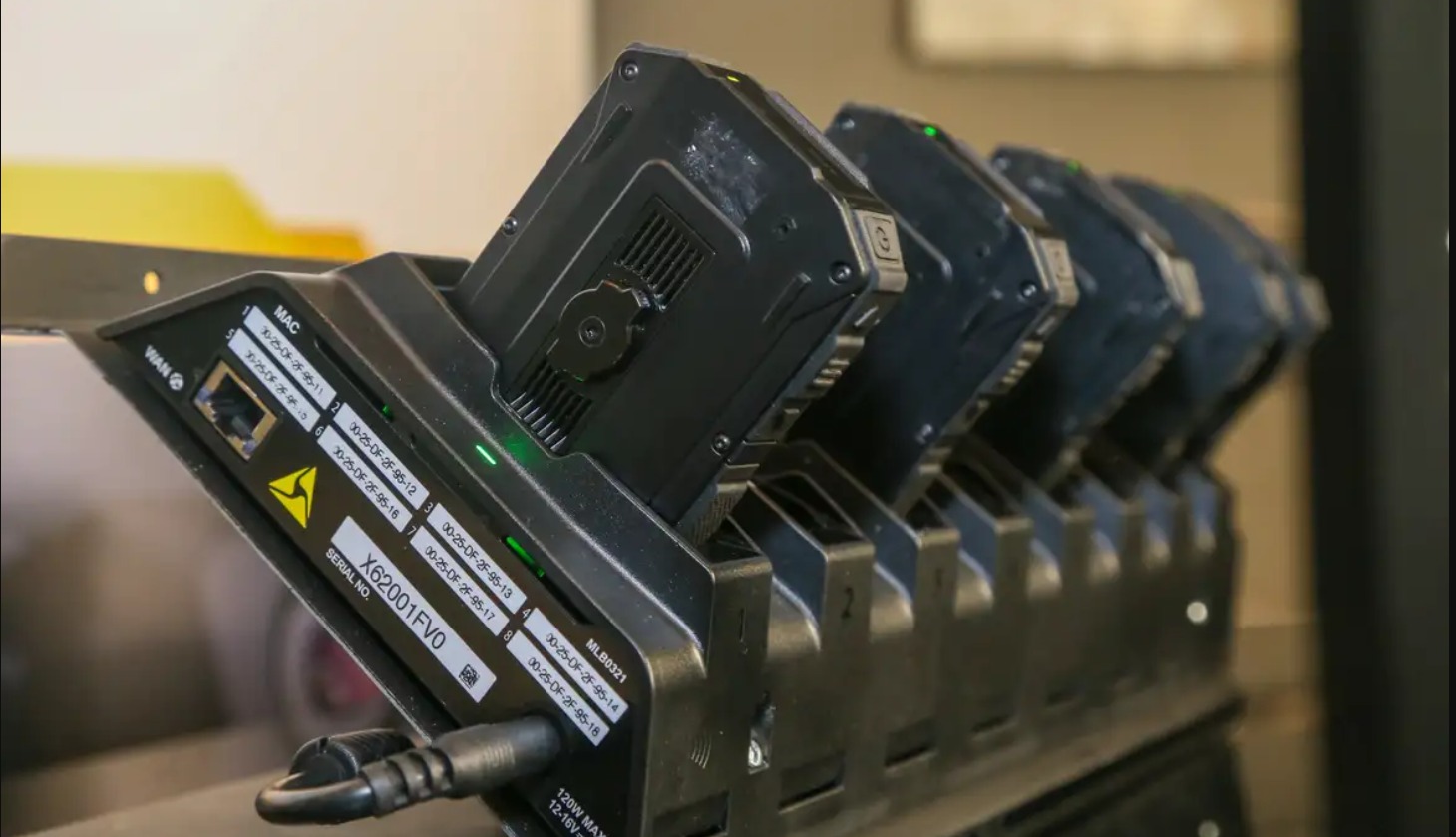Barroso acknowledges the importance of body cameras for public safety in São Paulo
The Supreme Federal Court (STF) Minister has ordered the São Paulo government to follow federal guidelines on the use of technology; the Military Police (PM) has announced that body cams must be activated in all incidents.
 Câmera corporal reduz letalidade policial e mortes de agências. Foto: Divulgação/Governo do Estado de São Paulo
Câmera corporal reduz letalidade policial e mortes de agências. Foto: Divulgação/Governo do Estado de São Paulo
On Monday (10), the President of the Supreme Federal Court (STF), Luís Roberto Barroso, acknowledged the importance of body cameras in public safety, and ordered that the São Paulo Government follow the guidelines of the Ministry of Justice (MJ) for the installation and use of the equipment in the Military Police (PM). According to the new rules, cameras will able to turn on automatically, record continuously and be activated during the policing duties of the military police.
The Minister expressed his opinion in the context of the action, Suspension of Injunction 1696, presented to the STF by the São Paulo Public Defender’s Office, with support from Conectas and Plataforma JUSTA, which aims to reinstate a decision taken in a Public Civil Action, in the Public Treasury Court of São Paulo, that mandated the compulsory use of cameras in the Shield Operations. During the hearing, the suspension of a São Paulo government notice regulating the use of the equipment was requested.
In response to the STF, the São Paulo Military Police announced that body cameras must be turned on in all incidents and approaches. The force launched a tender in May for the acquisition of new recording equipment to be used on police uniforms.
Read more
The importance of body cams
Although Barroso did not suspend the São Paulo tender, he did highlight that body cameras are fundamental for the transparency and accountability of police actions. To ensure the effectiveness of these measures, the Minister stipulated that the São Paulo Government must present an evaluation report on the effectiveness of the new equipment six months after its implementation. This report should analyse both the performance of the devices and the software responsible for the recordings.
Changes in monitoring rules
The Military Police launched a tender in May for the acquisition of new devices, which will increase the number of cameras from just over 10,000 to 12,000. However, the tender introduced several changes to the monitoring system. The cameras would no longer record continuously throughout the entire work shift. They would be activated manually by the officer or remotely by the police command.
Additionally, the storage time for the footage was reduced from three months to 30 days. In tense situations, officers could activate a special high-quality mode and this footage could be stored for up to one year.
Criticisms and concerns
Criticism has been levelled at the changes by experts and human rights organisations. The Brazilian Forum for Public Safety, The Brazilian Forum on Public Safety, the Study Group on New Illegalities GENI/UFF, the Vladimir Herzog Institute, Conectas, and other entities issued a joint statement condemning the discontinuation of uninterrupted recording. According to these organisations, the change undermines the effectiveness of the program and represents a waste of public resources. They argue that continuous recording is essential to ensure transparency and accountability in police operations.
Even before the tender, São Paulo’s military police officers were already manipulating body cameras and circumventing the storage system of the images captured during service. Various sources report the same problem: civil police officers, military police officers, prosecutors, members of the judiciary and public security researchers interviewed by UOL in a special report on the subject.
Reduction in police lethality
The use of body cameras by police officers to capture images during encounters has been advocated by public security and human rights specialists. One of the main advantages is the reduction in police lethality during encounters due to the use of the equipment. Another important point is the increased safety that the equipment offers for the officers themselves.
“The equipment is important for enhancing criminal investigations, providing an external control of police activities and protecting lives and the physical integrity of public agents and citizens directly or indirectly involved in police actions or encounters,” says Gabriel Sampaio, director of litigation and advocacy at Conectas.
A study, published in May 2023 by the Brazilian Forum on Public Safety, shows that in São Paulo the reduction in deaths due to interventions by military police officers on duty reached 62.7% – with the majority (76.2%) in battalions that were part of the body camera program. The deaths of São Paulo police officers on duty also decreased by 62.7% in the state – from 697 deaths in 2019 to 260 in 2022, according to research by the United Nations Children’s Fund (UNICEF) and the Brazilian Forum on Public Safety.






